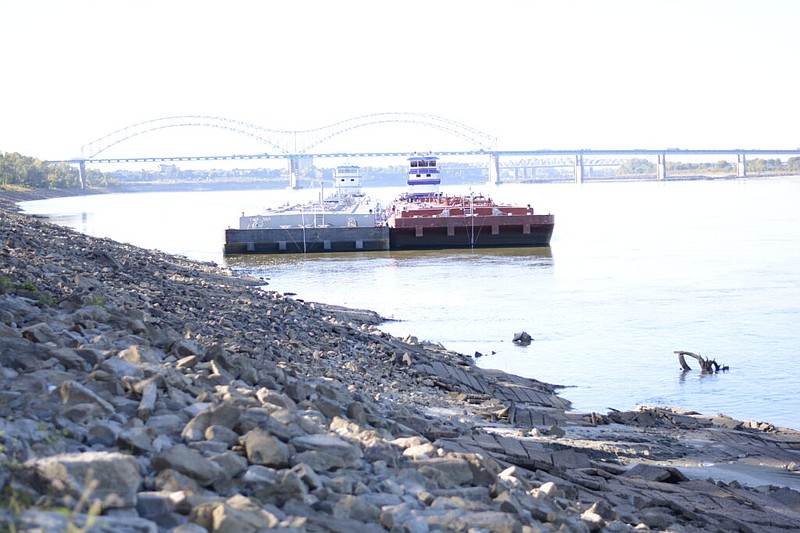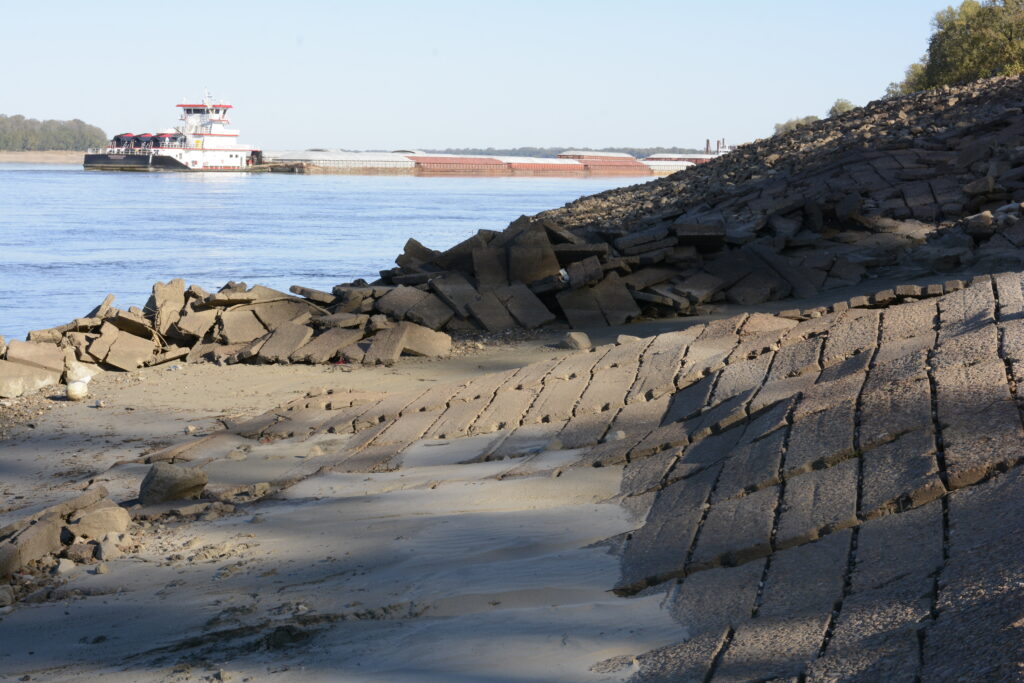John Dodson's corn, cotton and soybean fields lie fewer than 10 miles from the Mississippi River, the key transportation artery for west Tennessee grain farmers. But they might as well be a thousand.
Historically low water levels on the river are coming at the worst possible time for him. It's peak harvest season, and he can't get his crop to market.
West Tennessee farmers have long relied on proximity to the Mississippi, delivering their crops directly from the field to the river. The ease of access has meant many farmers lack large grain storage silos that farmers in the Midwest and elsewhere rely on.
While drought strangles transportation on the Mississippi, many of these farmers are now being forced to leave crops in the field and pray for rain everywhere else but above their harvest-ready crops.
"It's a double-edged sword for us right now," Dodson said. "We need rain for the river to go up, but we don't need it in terms of our crops in the field."
"I haven't ever seen this before. We have the Mississippi right on our back doorstep, and we've always been able to rely on it."
The Mississippi River last week reached the lowest levels ever recorded -- at minus-10.75 feet near Memphis, according to the National Weather Service.
It is the most critical artery for grain exports in the nation. About 60% of all U.S. grain exports flow down the Mississippi to the Gulf of Mexico for overseas export, according to the National Park Service.
Barge traffic has been restricted, and the U.S. Coast Guard has limited the weight born by each barge, measured in drafts -- or the distance between the waterline and the deepest point of the boat. Drafts are typically 12 feet. Last week the Guard limited drafts to 9 feet below the waterline in an effort to avert groundings in shallow water.
"There's been a lot of groundings," said Jamie Bigbie, vice president of Southern-Devall, which operates fleets of towboats and liquid barges that typically carry fertilizer to farmers.
The delays have been costly, he said. A recent trip that typically takes seven days down the Mississippi took the company's crew 14 days, he said. Weight restrictions limiting the amount of cargo still require the same number of crew, driving up costs.
Crews stay on board for the entirety of the trip so the delays require additional supply boats bringing provisions and fuel to the barges, he said. And barges running aground imperil the safety of the crews on board and require expensive repairs, he said.
"We need rain, obviously," he said. "And I hope we get rain before it turns into snow. That's how we get the ball rolling. I pray for rain."
Nashville-based Ingram Barge, the largest barge operator in the United States, notified customers it had declared record water levels a "force majeure event," the company said in a statement Friday. The declaration invokes an "act of God" provision in their contracts.
"Chronic low water conditions throughout the inland river system have had a negative effect on many who rely on the river, including Ingram Barge," the statement from John Roberts, Ingram Barge's CEO, said. "We recently informed customers that given the difficult operating conditions posed by this low water, we were providing formal notice of a force majeure event -- namely that circumstances out of our control were preventing normal river transport operations in certain areas."
Dodson, the Dyer County farmer, said he is more fortunate than most. He and his father took advantage of a state cost-sharing program to build large grain storage structures on their farm. The situation for neighboring farms is more dire, he said. More than 90% of Dyer County is devoted to agriculture.
The wait to load grain onto Consolidated Grain & Barge in Dyersburg has been running four to seven hours a day. Dodson's other loading destination in Lauderdale County has experienced multiple day-long closures entirely in recent weeks.
Those two locations handle the majority of crops in Dyer, Lauderdale, Obion, Tipton, Crockett and other west Tennessee counties, including Dodson's.
The weather in west Tennessee has been beautiful -- sunny, temperate and perfect for harvesting crops. Any substantial rain now could imperil crops in the field. Dodson is setting his hopes on rain anywhere north -- Ohio, Wisconsin, Minnesota -- to replenish the river.
"We need rain in the United States, but it doesn't need to be in Dyer County," he said.
Read more at TennesseeLookout.com.

